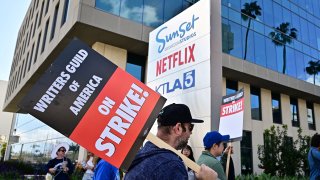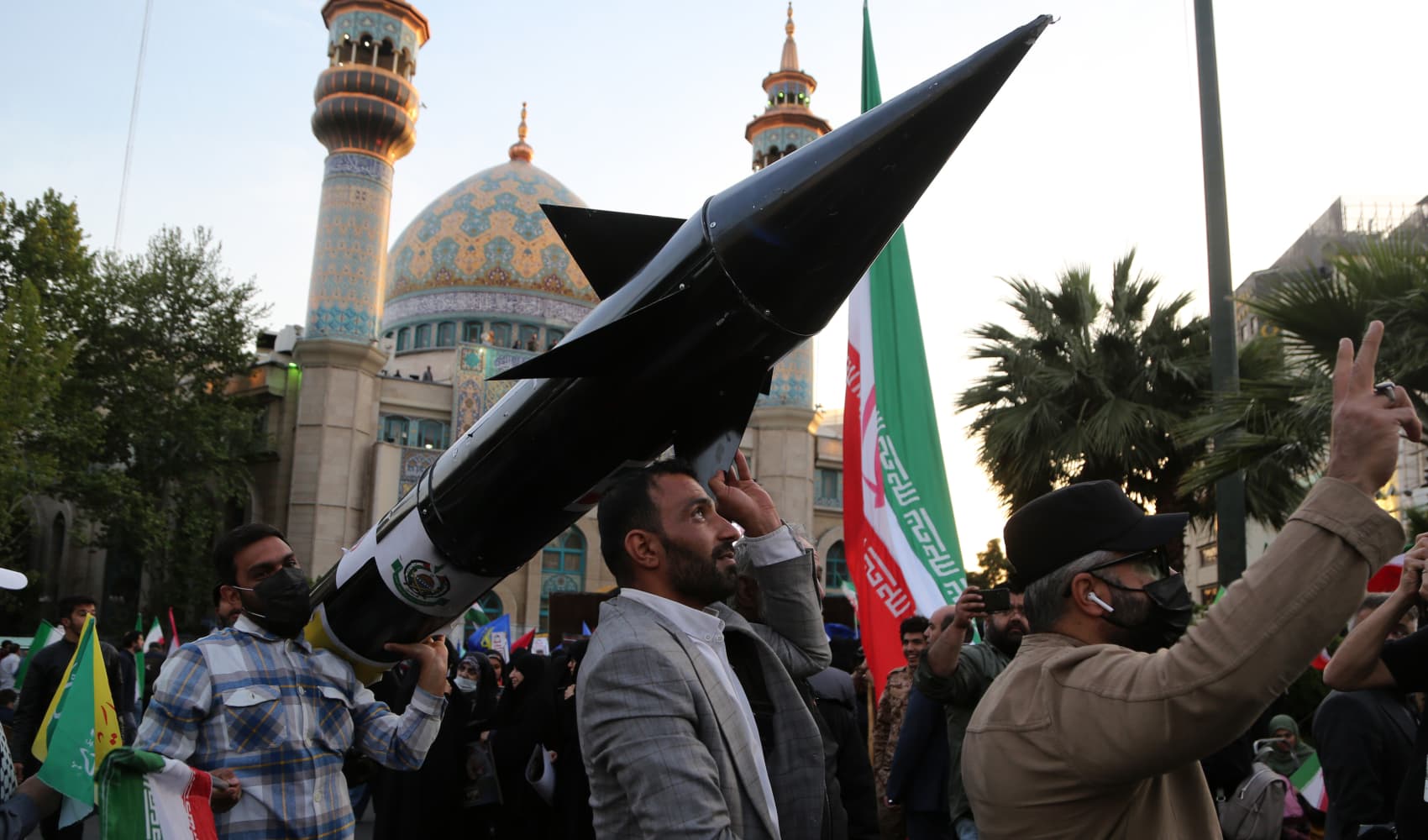
- The Directors Guild of America struck a tentative deal with the Alliance of Motion Picture and Television Producers.
- The Writers Guild of America said the proposed DGA contract will not end the writers strike.
- The Screen Actors Guild is wrapping up a vote to authorize a strike should its upcoming negotiations with the producers sour.
Hollywood producers have struck a tentative deal with film and TV directors, but that doesn't mean we should expect sudden resolutions to the writers strike or talks with the actors union.
On Sunday, the Directors Guild of America and the Alliance of Motion Picture and Television Producers provisionally agreed on a three-year contract that would provide the 19,000-member union with pay and benefit gains, increases to global streaming residuals and protections against the use of artificial intelligence.
The DGA contract is set to expire June 30. The guild will submit the proposal to its members Tuesday.
Get San Diego local news, weather forecasts, sports and lifestyle stories to your inbox. Sign up for NBC San Diego newsletters.
Meanwhile, the Writers Guild of America is entering the second month of its strike. Likewise, the Screen Actors Guild and American Federation of Television and Radio Artists is on the precipice of authorizing a potential strike should negotiations go sour. Those talks start Wednesday.
The WGA has been on strike since May 2, shutting down dozens of TV and film productions as talks stalled with the producers.
Already Netflix has postponed the production start of the fifth and final season of "Stranger Things," Warner Bros.' Discovery's "Game of Thrones" prequel "A Knight of the Seven Kingdoms: The Hedge Night" shuttered its writers room, and Disney and Marvel's "Thunderbolts" and "Blade" have paused production.
Money Report
During the last writers strike in 2007 and 2008, which lasted 100 days, a studio deal with the DGA prompted writers to head back to the bargaining table. That might not be the case this time around, though.
"We congratulate the DGA Negotiating Committee for getting a deal they are recommending to their National Board for approval and presumably will then send to their membership for ratification," the WGA negotiating committee wrote in a memo to members Sunday.
The committee said it would not comment on the deal points of the DGA's new contract and noted that its bargaining positions remain the same.
"Last week we sent an email about how the AMPTP divide and conquer strategy won't work this time," the memo read. "The AMPTP will not be able to negotiate a deal for writers with anyone but us."
The committee also said it was standing in solidarity with SAG-AFTRA as they complete their strike authorization vote Monday.
Representatives for SAG-AFTRA did not immediately respond to CNBC's request for comment.
The WGA's memo echoes comments made by WGA negotiator Chris Keyser on Friday, when he provided a public update one month into the strike via YouTube.
"Any deal that puts this town back to work runs straight through the WGA, and there is no way around that," he said.
Keyser also expressed that the WGA strike has already "been highly effective in inflicting pain on the companies," noting that the withholding of work, coupled with public picketing, has demonstrated the guild's resolve in obtaining "the contract we deserve."
The A.I. fight
In the DGA's agreement, directors secured wage increases starting at 5% the first year, an increase in residuals from streaming and a guarantee that artificial intelligence could not replace the duties performed by members.
AI has been a major concern for the guilds of both the writers and actors, who see their jobs as especially vulnerable to this new technology.
Both the WGA and SAG-AFTRA are seeking protections against AI use in their negotiations, in addition to increases in compensation for streamed content. The WGA is also seeking a minimum staff level for TV writers rooms and more competitive minimum payments for work.
The WGA is less worried about being replaced by AI systems and more concerned that production companies will exploit these technological tools to reduce writers' salaries.
SAG-AFTRA has acknowledged that AI technology can have its benefits in the industry, but it wants to ensure that any use of AI to replicate an actor or create a new performance is done with the actor's consent and payment. The guild has similar guardrails when it comes to computer generated image capture.
Already, some performers, such as James Earl Jones, have already agreed to have their voices cloned for use after their deaths. Jones, 91, famously voiced Darth Vader in the Star Wars franchise and sought to wind down from the role. Jones was compensated and the technology was used to bring Vader's iconic voice to Disney+'s "Obi-Wan Kenobi."
The actors guild has also been outspoken about its negotiations being for the benefit of all its members, not just the big stars. Health coverage, compensation and residuals are top of mind for tens of thousands of working actors.
SAG-AFTRA's vote for strike authorization wraps up Monday at 8 p.m. ET.
Disclosure: Comcast is the parent company of NBCUniversal and CNBC. NBCUniversal is a member of the Alliance of Motion Picture and Television Producers.






